ACWA Power on the future of renewable energy in Saudi Arabia
Looking forward into 2016, we are looking forward to a busy year. In our 11-year history, 2015 was our busiest year.
Interview with Paddy Padmanathan, President and CEO of ACWA Power
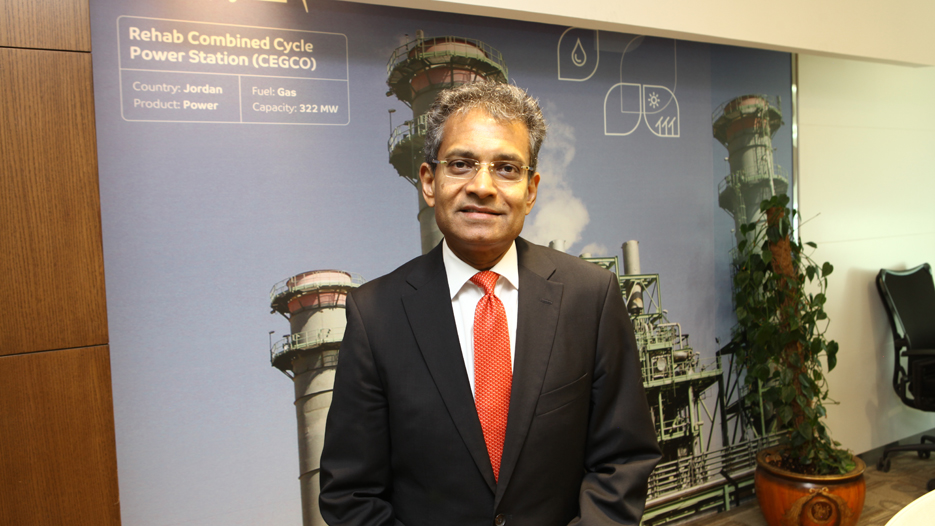
The IMF came up with a report that in five years Saudi Arabia will face considerable challenges and even go bankrupt. They said that foreign financial assets fell over the last seven consecutive months to $654 billion at the end of August. Then, Saudi Arabia raised 55 billion riyals from debt insurance this year, and the IMF expects debt-to-GDP ratio to grow to 17% next year, so there is a lot of spending but not enough income. Do you think these reports are exaggerated?
I believe reports of that nature are very useful because it focuses everyone’s attention to it; but, the fact of the matter is, 17% debt-to-GDP ratio is not such a terrible state to be in. The world changes – today the biggest issue for the Kingdom somewhat remains the same, but certain things have become a bigger issue, and have focused attention elsewhere.
The Kingdom had already recognized a couple of things: demographics are changing – younger people are coming towards the age when they need to be gainfully employed – this is not a liability, but a potential asset (provided it is properly utilized). Back then, the concern was around the fact that the Kingdom was too dependent on one commodity – oil. Regardless of where oil was headed, that was already a concern and linked to the need to create employment to grow the economy. There were already strategies around industrialization where they were starting to change the educational structure in order to make sure the younger population are trained the right way (science, technology, and so forth) to contribute to this industrialization and growth of the economy. All of that was already starting to happen.
All that happened in 2014-2015, is that the world went through another cycle of change due to a variety of reasons, and, all of a sudden, the value of oil in the marketplace dropped. The Kingdom was already starting to reposition itself: broaden the economy, get the private sector more involved, and diversify their asset platform. Of course, that then unfortunately coincided with greater regional instability, which required Saudi Arabia to exercise its leadership in the region (start contributing towards redevelopment of Egypt and the repositioning of Yemen), adding financial burdens.
The other important point is that the late King Abdullah had started repositioning the economy, and took many steps towards addressing these issues. Then he passed away, and we have a new administration, which has embraced and recognized the urgency of that. And therefore, has revitalized the pace of repositioning action, and we can see already the effects and impacts on the economy. The private sector is much more positive, albeit concerned, but more positive with opportunities that are being given and are poised to participate as the economy broadens itself and become less dependent on oil.
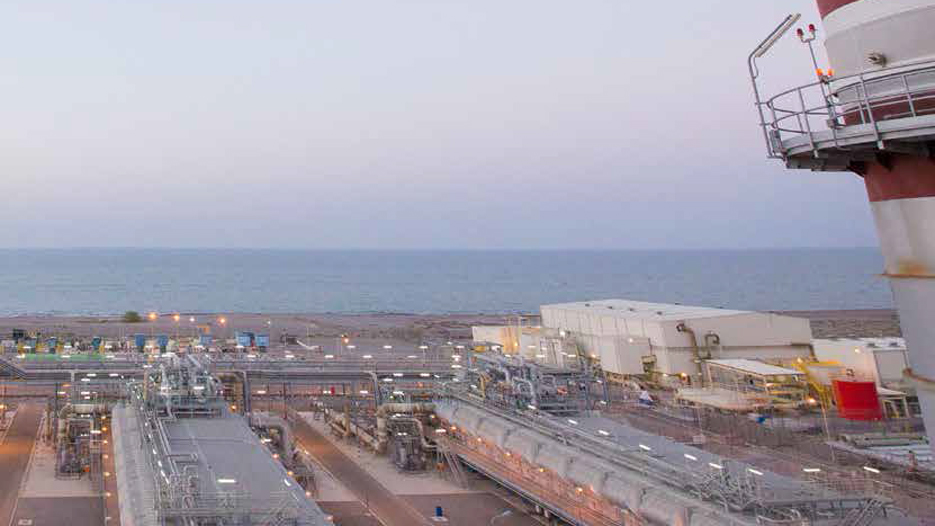
I firmly believe that oil prices at this level for a period is actually good for the Kingdom of Saudi Arabic, because it will allow the Kingdom to remain under pressure and perform better. The oil and gas fundamentals, solid foundation, and people that we have in the Kingdom are an asset, not a liability. Saudi Arabia is blessed with a younger population that can be – and will be – utilized for the benefit of society and the economy. As the oil prices change, gas prices diminish we will find new ways of beneficiating and utilizing these things more valuably. The Kingdom will get involved in more tertiary investments and looking at beneficiating the raw material, rather than just selling these commodities, but instead turn them into goods and services. All of that gives us an opportunity.
The mining potential of this country has not been tapped, that’s something that is starting to get tapped; and, rather than just export primary metals, the Kingdom will be able to beneficiate. There is an established industrial platform and industrial culture that exists now, which is an opportunity for us to build on that. Fantastic, high quality research and development institutions have already been established – and new ones are being rolled out – so there is even an opportunity for us to create and add to knowledge, and localize innovation.

This sort-of crisis is helping and forcing people to relook at how they deploy capital, and quite a lot of people are bringing capital back into the country. The government is relooking at how it deploys its own assets and how to utilize domestic wealth for the benefit and multiplication of the economy, rather than park it around the world in treasury bills and investments in foreign companies.
Underneath it all, of course, risks exist (like in anything we do). We need to understand, mitigate, and manage those risks, and the Kingdom is well poised to do so. I’m the eternal optimist perhaps, but there are a lot of real, valid reasons to be optimistic.
At the beginning of the year, King Abdullah delayed their renewable energy project by a few years. What is the situation in the renewable energy field? There is a divergence on views, although everyone agrees on the goals, but they have different ideas on how to implement them.
First of all, KACARE, the regulator for renewable energy, did not postpone the timeframe – they elongated it. They had a particular set of targets to achieve by 2032, but now they have prolonged the pace of deployment. Secondly, it is very true that there is consensus, given where renewable energy costs have come down to, about the compelling value proposition to serve a certain segment of our energy needs in the country with renewable energy.
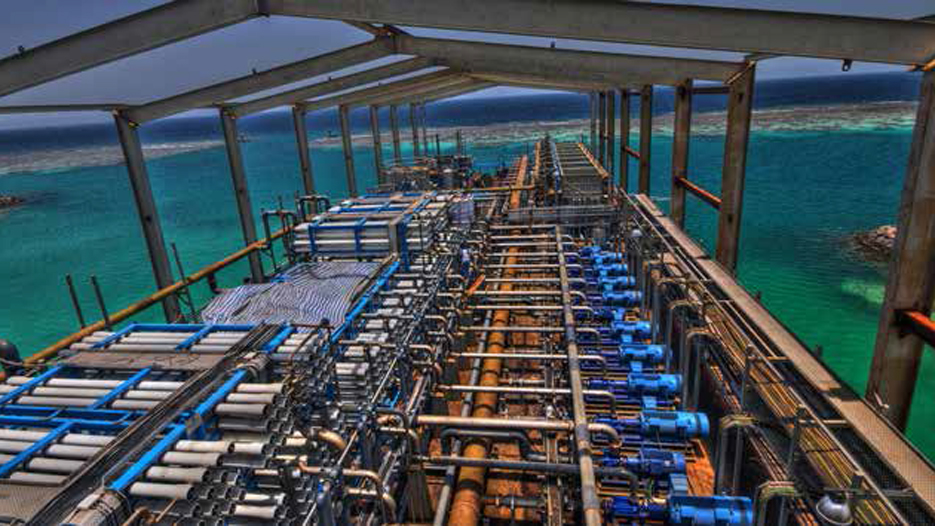
There is a lot of experience that has been built up through deployment elsewhere, and in that respect we’re very fortunate as one of the latecomers to the renewable energy arena to benefit from that experience. I believe it’s right that we take the time in order to learn, understand, correctly position, and put in place the correct policies and procedures in order to maximize the value we are going to create out of deployment than just rush forward and deliver a bunch of megawatts as renewable energy. The mere act of implementing projects, and bringing and installing technology, are all valuable opportunities for the Kingdom to tap into – particularly at the scale at which the Kingdom will ultimately deploy renewable energy. These are wonderful opportunities for taking value in economic development and create a new industrial platform. It’s all inevitably taking a little bit of time, but the compelling value proposition becomes more compelling and the low oil prices are fantastic news for this as well.
Very simple, the Kingdom now recognizes even more the need to be more efficient in everything it does: reduce subsidy bill, given that renewable energy is more cost competitive compared to fossil-fuel based alternatives in that segment.
Very simple, the Kingdom now recognizes even more the need to be more efficient in everything it does: reduce subsidy bill, given that renewable energy is more cost competitive compared to fossil-fuel based alternatives in that segment. If we were able to start delivering that renewable energy, then it’s recognized now that the subsidy bill itself will start to diminish. That’s good news. The Kingdom will also be able to use less oil internally and make available more oil to dispatch to the market, and continue to generate more revenue in this low oil price environment. Whichever way you look at it – lower oil prices are driving us to a reasonably soon renewable energy deployment.
As you mentioned, the cost of subsidies was 40 billion in 2013. Saudi Arabia was burning 70,000 barrels per day between 2009-2013, which is oil that could have been sold on the international market.
We have a lot of data given that we are a major generator of electricity in this country and using that data to model what can be done, our analysis shows that we can already start to use renewable energy for 20-40% of the daily energy consumption, which means we should be able to replace and liberate those levels of domestic oil consumption. You briefly talked about reducing the subsidy bill, and if the country should be raising consumer prices. Any change tends to upset people, but we’ve got to give credit to the common people. At the flash of a moment, one may think that it’s a “right” to get water for nothing, but the reality is that everyone know well that there is a cost for that water to be delivered to the tap.
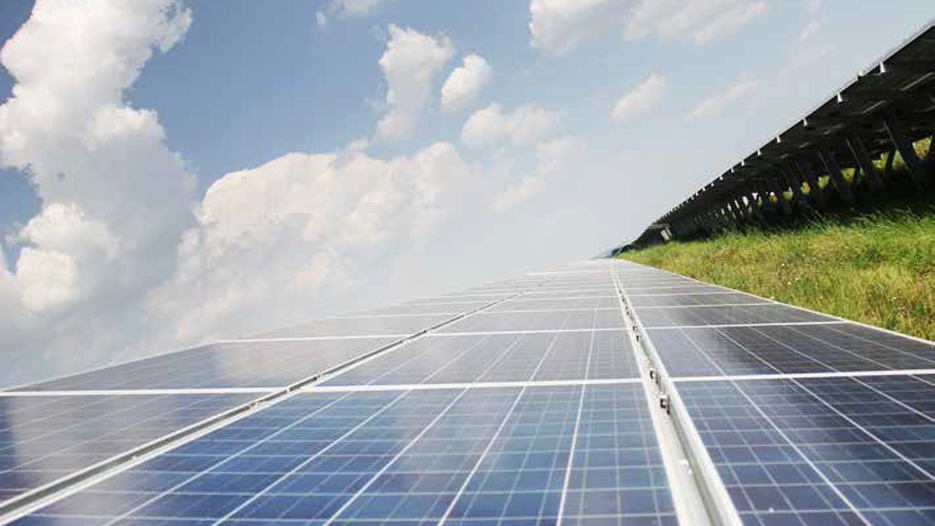
Saudi Arabia is no different than anywhere in the world – people would rather pay for reliable service. Yes the reality is that people don’t know how much they pay for their mobile phones as the payment goes by direct debit and they just keep paying, but they get excited when they have to pay for water and electricity. This is human nature across the world. In the case of electricity, the domestic consumer level is paying around ¼ of the true cost. What does that mean? We need to multiply their tariffs four times. You can do that progressively over a period of time and not overnight, but you can start to raise the industrial and commercial tariffs immediately. Water is worse; people are paying a faction of the true cost; more like a few percent of the true cost!.
People will ultimately understand it, but it’s all about communication and education. One of the interim steps is for the government or the distributors to start educating people of the true cost by issuing bills that listed the true consumption charge and the amount of government grant that is being applied in the bill to give the very low bottom line each consumer is being asked to pay. With the right educational or publicity campaign, we can start to get people to recognize the true value of the service they are getting. It’s extremely important to properly value what we receive, because that’s the only way we’re going to conserve and stop abusing that free gift that we get.
What are your plans for the upcoming six months? Especially ACWA’s plans with your project with clean coal in UAE and your other project in South Africa?
Looking forward into 2016, we are looking forward to a busy year. In our 11-year history, 2015 was our busiest year.
In the past, typically in a given year, we have submitted tenders for three new, big projects; in 2015, we submitted bids for 11 new projects, nearly 4 times our past level of activity. Many of these bids we have ended up winning which means our win rate has remained at 2 out of 3. As ACWA Power goes into 2016, all of the projects will now be financed and will go into construction phase, and I see another 12 new bid in the pipeline. The company is growing very fast with operations in 13 countries.
Looking forward into 2016, we are looking forward to a busy year. In our 11-year history, 2015 was our busiest year.
You expressed a bit of a surprise about the clean coal project in Dubai. First of all, our mission is to reliable deliver electricity and water at the lowest possible price. We are technology neutral and fuel agnostic: we don’t tell our customers what to do, we only respond to their needs and requests. They’re the ones who make choices in regards to fuel. Over the last few years, we have entered the African market where coal is used much more. We have a coal-fire plant in Mozambique where construction has started, we submitted a coal-fired power plant tender in South Africa, and we are pursuing a coal- fired power plant project in Botswana. We are already involved in coal, and coal will remain as a fuel as there are certain countries around the world where you don’t have many other choices for baseload power.
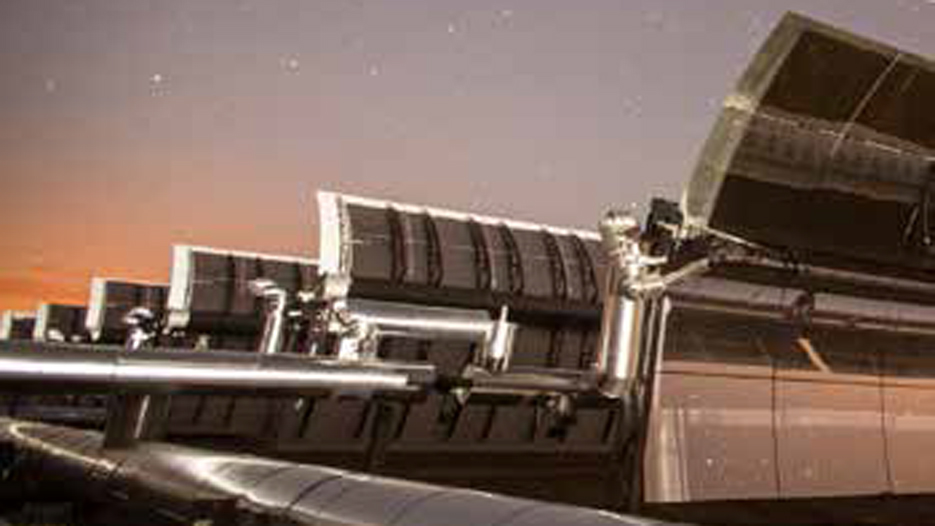
Our discussion regarding coal needs to look at how to minimize and eliminate the environmental impact. Just as what we have seen in renewable energy, who on earth could have predicted that energy prices would come down to the level that they have and how deployment would take over so fast to the extent where over 400,000 megawatts has been installed around the world. Nobody could have predicted that a decade ago. There is no point in saying carbon sequestration in coal-fired power plant emissions will never work – nonsense. We need to work at reducing the cost and we need to continue to focus on what we do with the carbon. All of this of course doesn’t mean we rush forward and keep building coal-fired power plants as fast as we can.
Coming to the Dubai project, it is a bit of a surprise that coal power is being introduced to an area that is in the middle of the oil and gas land. But there is a logic to it. Coal is being used in this instance to help with fuel diversity. It’s very important to not put all of your eggs in one basket. They’re not jumping to do 50% of base load with coal but rather setting a sensible limit of 7.5% of power generation with coal-fired plants. It is a clean coal plant, which on the face of it is a bit of a misnomer because coal is after all dirty, but this particular plant has the toughest environmental emission clean-up requirements of any coal-fired power plant specified today in the world. What DEWA did is that they took some of the toughest environmental restrictions and requirements from multiple sources and made a new standard – the standard that we are now required to comply with at this plant.
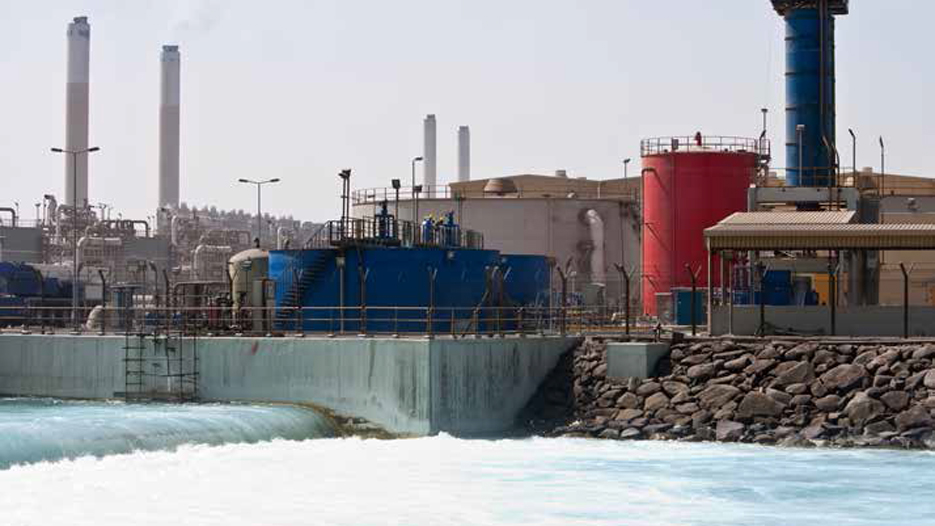
Consequently, we are ending up with an ultra-super-critical coal-fired power plant that will be more efficient with less emission. Because it’s in Dubai, it is being developed to minimize visual impact as well and will become a model plant and thus we’re very excited about that project. But, of course, I’m even more excited about our concentrated solar power plant in Morocco which will come online before the end of this year. We will start to produce a significant amount of green electricity in the deserts of Morocco that will also be dispatched at night. The South African Concentrated Solar Power plant which will be sending solar powered electricity well into the night as well will also come online before the end of this year.
These are big, visible renewable energy projects that show the world what can be done at shockingly low costs enabling this valuable technology CSP which can allow us to cost competitively store the heat of the sun for use at night to become a meaningful contributor to the energy mix. It’s an exciting period for us at ACWA Power, as we continue to grow and do interesting things.